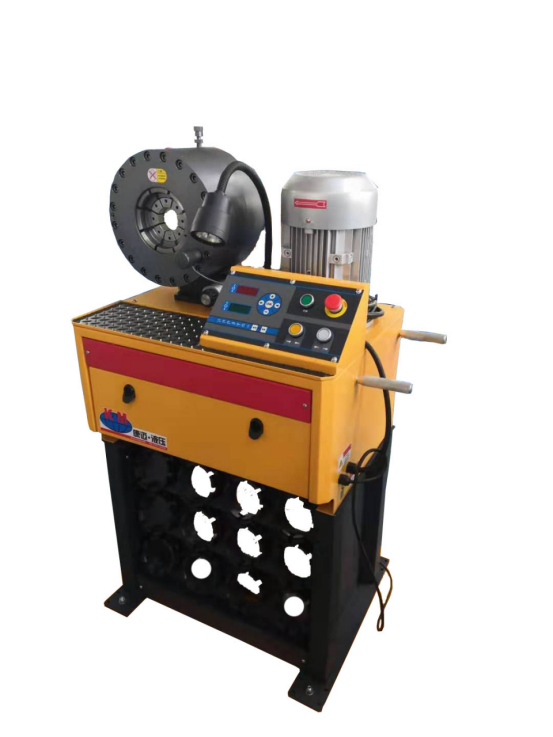335345435
Jul . 29, 2024 02:58 Back to list
Exploring Top OEM Hydraulic Hose Manufacturers and Their Innovative Solutions in the Industry
The Evolution and Significance of OEM Hydraulic Hose Factories
In today’s industrial landscape, the efficiency and reliability of machinery are paramount. Among the critical components that ensure these standards are met are hydraulic hoses, essential for the transfer of fluids in various hydraulic systems. Original Equipment Manufacturer (OEM) hydraulic hose factories play a vital role in designing and producing these essential components, catering specifically to the needs of various industries.
The Role of OEM Hydraulic Hose Factories
OEM hydraulic hose factories are dedicated to manufacturing hoses that meet industry-specific standards while ensuring quality and durability. Unlike aftermarket products, OEM hoses are built to match the exact specifications of the original equipment. This precision in manufacturing is crucial for several reasons it enhances the overall performance of machinery, reduces the risk of failures, and prolongs the lifespan of hydraulic systems.
These factories are equipped with advanced technology and skilled personnel who understand the intricate requirements of different hydraulic applications. From construction and agriculture to automotive and aerospace, OEM hydraulic hoses must withstand high pressures, extreme temperatures, and corrosive substances. Therefore, OEM manufacturers invest in research and development to innovate and refine their products continuously.
The Manufacturing Process
The production of hydraulic hoses in OEM factories involves several key steps, beginning with the selection of high-quality raw materials. Typically, these hoses consist of an inner tube made from elastomers or thermoplastics, reinforced with layers of textile or wire, and protected by an outer layer that can withstand environmental challenges. The choice of materials is critical, as it determines the hose's performance and longevity.
oem hydraulic hose factories

Once the materials are procured, the manufacturing process involves precise engineering techniques. Cutting, assembling, and crimping are integral processes that require accuracy to ensure the final product meets stringent quality control standards. Additionally, OEM factories conduct rigorous testing on their hoses to guarantee that they can handle the pressures and conditions they will face in real-world applications.
Customization and Flexibility
One of the significant advantages of working with OEM hydraulic hose factories is their ability to provide customized solutions. Many industries have unique requirements, and OEM manufacturers can tailor hoses to meet specific dimensions, pressure ratings, and environmental considerations. This level of customization is critical for industries where standard hoses may not provide the needed performance or safety assurances.
Furthermore, as industrial demands evolve, OEM factories are increasingly adopting flexible manufacturing practices. This adaptability allows them to respond quickly to changes in market conditions, ensuring that they can meet the needs of their clients without compromising quality.
The Future of OEM Hydraulic Hose Factories
As technology advances, OEM hydraulic hose factories are expected to embrace new innovations such as smart manufacturing and the Internet of Things (IoT). These developments will enhance the efficiency of production lines, reduce waste, and improve traceability throughout the manufacturing process. Additionally, the ongoing focus on sustainability is prompting OEM manufacturers to explore eco-friendly materials and processes, aligning with global efforts to reduce environmental impact.
In conclusion, OEM hydraulic hose factories are integral to various industries, providing reliable, high-quality components that ensure the efficiency and safety of hydraulic systems. Their commitment to precision engineering, customization, and adaptation to technological advancements positions them as key players in the evolution of industrial manufacturing. As we look toward the future, the importance of these factories will only continue to grow, driven by technological progress and the ever-increasing demand for reliable hydraulic solutions.
-
Discount Hydraulic Hose Factories | Top Quality & Discounts
NewsJul.20,2025
-
EN856 4SP Hydraulic Hose - High Pressure & Durable
NewsJul.20,2025
-
SAE 100 R17 Black Smooth Cover Hydraulic Hose
NewsMar.07,2025
-
SAE 100 R17 Black Smooth Cover Hydraulic Hose
NewsMar.07,2025
-
SAE 100 R17 Black Smooth Cover Hydraulic Hose
NewsMar.07,2025
-
SAE 100 R17 Black Smooth Cover Hydraulic Hose
NewsMar.07,2025



